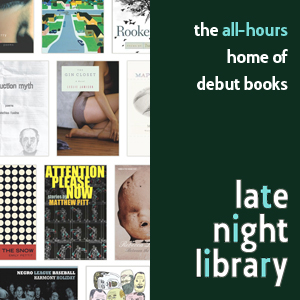 Revisited
Revisited
A Stranger Got It:
Stone Temple Pilots' Core

By Jessica Machado
This was also the summer I went on my very first date, a.k.a. the season that changed everything. The date was with the school’s baddish boy, named, let’s say, Hank, who smoked and had mastered the sly grin. He spent much of the date aloof, as bad boys are wont to do, staring off into the distance and intermittently asking me questions to ensure we were compatible in the ways that mattered to him: “This one girl I dated would break into [insert name of rich private school], and jump off the roof into the pool with me. Would you be down with that?” Or, “You wanna go to Tantalus (a.k.a. heavy-petting peak) right now?” I told him I wasn’t quite prepared for the prior but I’d be down for the latter. As a kissing virgin, I wanted nothing more than to make out with him, or anyone, really, just to get it over with. However, once we got there, I chickened out and he took off, both annoyed and embarrassed for me as though I was a throbbing, unripe pimple. Needless to say, he never called me again.
With all that date-free, heartbreak-laden time on my hands, I spent much of June, July and August listening to Core incessantly. Where I grew up, Hawaii, alternative music wasn’t extremely popular. Even Pearl Jam and Nirvana were practically underground, since only one radio station had them in its rotation. Pop, R&B, West Coast hip-hop and Jawaiian (a hybrid of reggae and Hawaiian) filled the Walkmans of most kids’ I knew, but by 1993 my teenage rebellion had set in, and I was sick of liking things just because I was supposed to. I wanted to be a badass, the type of girl Hank would like, the type of girl who didn’t give a shit what anyone else did or wore or listened to. I wanted something moodier and angrier with a tinge of melancholy, something that sounded like my confused feelings, not like Mariah Carey’s sappy Music Box. And there was never a better time for alternative music to appear and fill that desire.
But Core was more than a musical stance and a gateway to a plethora of genres I’d soon discover—punk, post-punk, Two Tone, dark wave, goth, angry-as-fuck metal; it was a pivotal move toward the type of woman I’d turn out to be—hard on the outside and a messy goop of sensitivity on the inside.
 Stone Temple Pilots in 2010.
Stone Temple Pilots in 2010.When I first heard “Plush” on MTV, I instantly fell in love with Scott Weiland’s excellent yearning. All any teenage girl (or twenty- or thirtysomething woman, even) wants to do is find an outlet for her yearning, an excuse to squeeze the longing in her guts and in her unsatisfied (and newly realized) sexual organs out through her squeaky, never-loud-enough voice. To screech and yell and moan along to a chorus soaked in heartache and tension. And when Weiland sings, “And I see that these are the eyes of disarray-ay-ay/Would you even care?” it felt like this stranger got it. Better yet: A man got it.
As I put on Core now, I can still hear all of that conflicting pre-emo emo-ness. “Sex Type Thing” and “Crackerman” sound exactly like their titles—frenzied and erratic. I remember spastically spinning around my room in circles, trying to get out that energy, and I’m a little tempted to do the same, right now, in the middle of a Saturday afternoon as I’m all alone and the workweek is over. I hear the words to “Piece of Pie”—”Standing around/Dressed like a clown/Don’t know my name/You know where to find me”—and I recall how I felt when Hank ignored me in homeroom the following fall, and then I find myself singing along, with meaning, to a song I probably hadn’t heard in nearly twenty years, because sometimes you just gotta let it out, whatever it is. You don’t have to have thumping teenage hormones to succumb to a pointless hissy fit or a crying bout. Sometimes you just need a reason to release all your pent-up garbage and goofiness.
Though Core hits all the nostalgia points, I’m not sure it’s something I’d sync up with my iPod for more than a car ride. Some of the album sounds dated (the short Hunter S. Thompson brain-dripping interludes of “No Memory” and “Wet My Bed”; the less-than Alice in Chains-y guitar intro on “Sin”), and some songs are more lackluster than I remembered (“Creep” is neither as creepy or as sentimental as it once was). And yet there are other places where the over-the-top rock ambition works (like during the entire last two minutes of “Where the River Runs,” in which the guitar semi-solo sounds as dramatic as an 80s hair-metal song, in the best way).
However, the standout remains “Plush.” Though I now realize it’s a song about infidelity (“When the dogs begin to smell her/Will she smell alone?”), you can still make it be about whatever emotional trauma you want it to be about. Every drumbeat is a head nod. Every stretched note of Weiland’s voice is both fluid and coarse, pained and husky. “And he feels iiiiiit/And she feels iiiiiiiit...” Yes, yes, she does. And the world seems both more lonely and more understanding the moment Weiland acknowledges all those feelings.
Re-listenability: 8
 Jessica Machado is an assistant editor at Rolling Stone and author of the blog "Baggage Claimed" (baggageclaimed.tumblr.com). Her work has appeared in Bust, The Awl and The Economist’s More Intelligent Life, among other publications.
Jessica Machado is an assistant editor at Rolling Stone and author of the blog "Baggage Claimed" (baggageclaimed.tumblr.com). Her work has appeared in Bust, The Awl and The Economist’s More Intelligent Life, among other publications.



